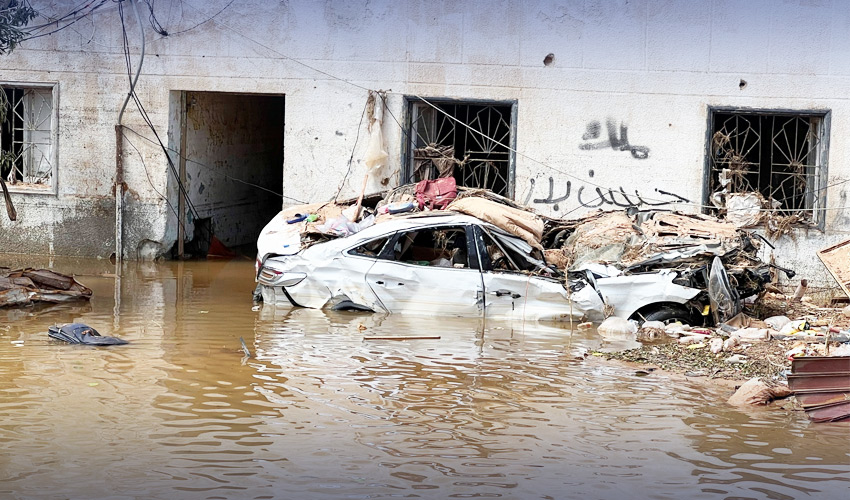The death toll resulting from the catastrophic flooding in the eastern coastal city of Derna in Libya has reached a staggering 11,300 people, according to a UN report released on Saturday. Tragically, search and rescue efforts are expected to uncover more victims in the coming days.
The United Nations Office for the Coordination of Humanitarian Affairs (OCHA) reported an additional 170 casualties outside of Derna due to the flooding. Furthermore, within Derna itself, a shocking 10,100 people are still missing.
These figures are anticipated to rise as search and rescue teams continue their tireless efforts to locate survivors, the report stated. The devastating flooding, triggered by Storm Daniel, has resulted in the displacement of over 40,000 people across northeastern Libya.
Experts highlight that the impact of the storm was exacerbated by a combination of factors, including aging and deteriorating infrastructure, insufficient warning systems, and the escalating climate crisis.
Derna, which bore the brunt of the disaster, was effectively split in two as floodwaters engulfed entire neighborhoods. Prior to the tragedy, the city had a population of approximately 100,000 people.
Derna alone has seen at least 30,000 people displaced, according to the UN. The shifting floodwaters have raised concerns about increased exposure to landmines and Explosive Ordnance of War (ERW), remnants from years of conflict.
The report also highlights the heightened risks faced by nearly 300,000 children who were exposed to the flooding caused by Storm Daniel. These risks include cholera, malnutrition, diarrhea, dehydration, as well as a greater susceptibility to violence and exploitation.
Rescue teams are working diligently to recover bodies from collapsed buildings and search the sea for victims. Most of the deceased are found in the water, making it crucial to secure additional equipment and assistance for body retrieval from the Mediterranean.
The deteriorating condition of the bodies poses a significant challenge to the recovery efforts. Representatives from various international missions reported that dead bodies are severely decomposing, and there is a growing concern that retrieving them may become increasingly difficult.
Efforts to locate bodies have extended to areas accessible only by boat, including bays, coves, and underwater locations. Coordination among mission representatives from different countries is crucial to streamline and enhance the efficiency of the recovery process.
Additionally, some bodies are trapped beneath layers of mud in residential areas that are still inhabited in Derna. This situation has the potential to trigger a health crisis if the affected areas are not evacuated promptly.



























